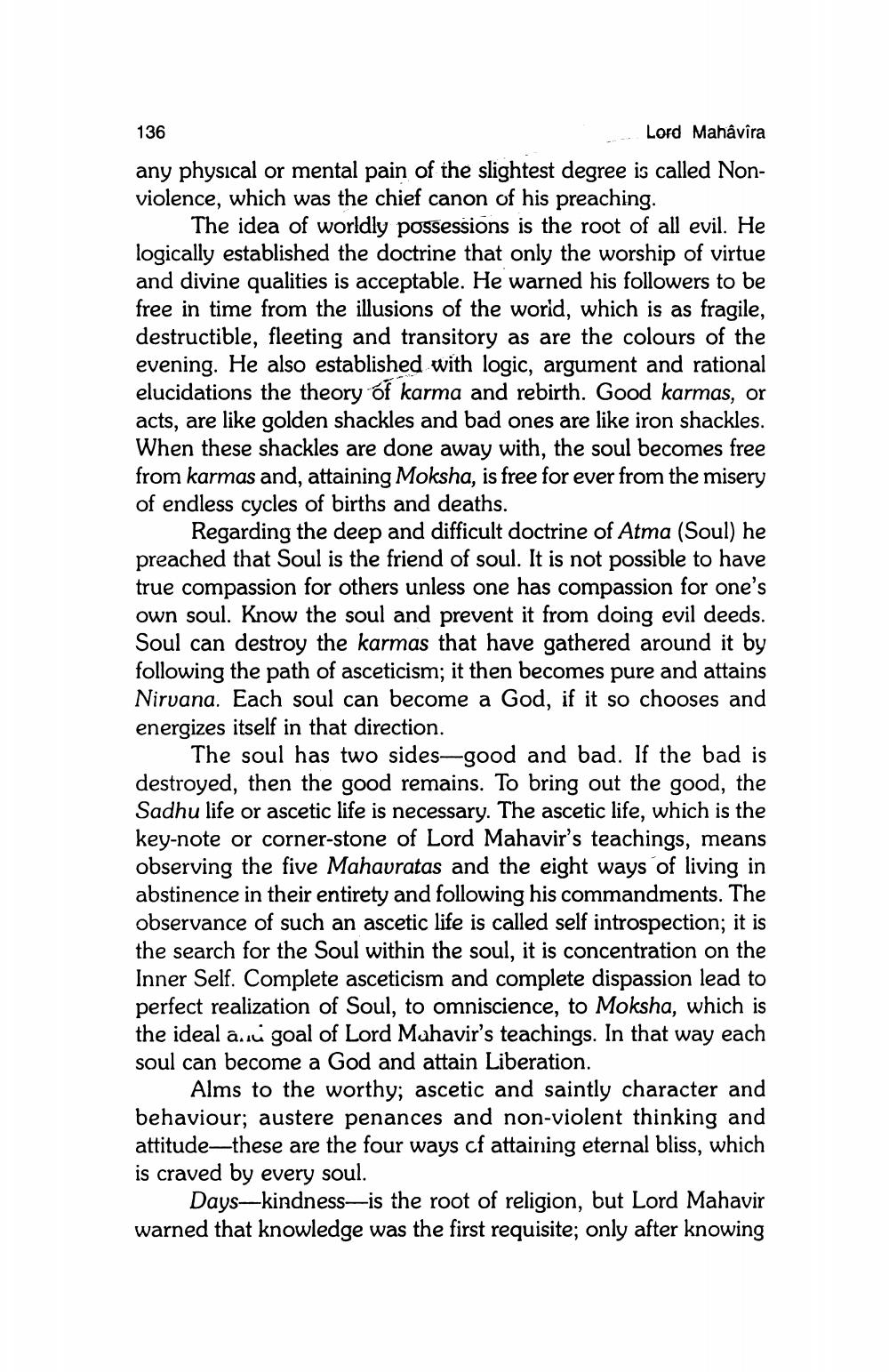________________
136
Lord Mahâvîra
any physical or mental pain of the slightest degree is called Nonviolence, which was the chief canon of his preaching.
The idea of worldly possessions is the root of all evil. He logically established the doctrine that only the worship of virtue and divine qualities is acceptable. He warned his followers to be free in time from the illusions of the world, which is as fragile, destructible, fleeting and transitory as are the colours of the evening. He also established with logic, argument and rational elucidations the theory of karma and rebirth. Good karmas, or acts, are like golden shackles and bad ones are like iron shackles. When these shackles are done away with, the soul becomes free from karmas and, attaining Moksha, is free for ever from the misery of endless cycles of births and deaths.
Regarding the deep and difficult doctrine of Atma (Soul) he preached that Soul is the friend of soul. It is not possible to have true compassion for others unless one has compassion for one's own soul. Know the soul and prevent it from doing evil deeds. Soul can destroy the karmas that have gathered around it by following the path of asceticism; it then becomes pure and attains Nirvana. Each soul can become a God, if it so chooses and energizes itself in that direction.
The soul has two sides-good and bad. If the bad is destroyed, then the good remains. To bring out the good, the Sadhu life or ascetic life is necessary. The ascetic life, which is the key-note or corner-stone of Lord Mahavir's teachings, means observing the five Mahavratas and the eight ways of living in abstinence in their entirety and following his commandments. The observance of such an ascetic life is called self introspection; it is the search for the Soul within the soul, it is concentration on the Inner Self. Complete asceticism and complete dispassion lead to perfect realization of Soul, to omniscience, to Moksha, which is the ideal a. goal of Lord Mahavir's teachings. In that way each soul can become a God and attain Liberation.
Alms to the worthy; ascetic and saintly character and behaviour; austere penances and non-violent thinking and attitude-these are the four ways cf attaining eternal bliss, which is craved by every soul.
Days-kindness-is the root of religion, but Lord Mahavir warned that knowledge was the first requisite; only after knowing




